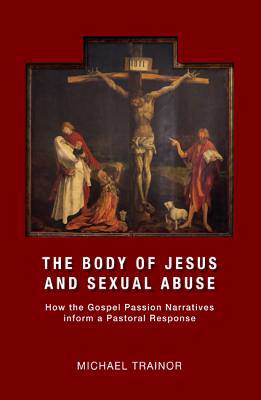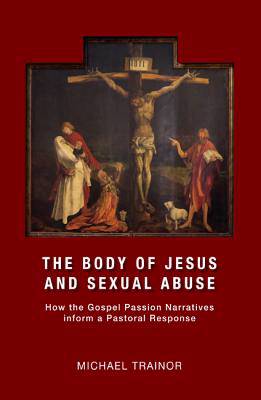
- Retrait gratuit dans votre magasin Club
- 7.000.000 titres dans notre catalogue
- Payer en toute sécurité
- Toujours un magasin près de chez vous
- Retrait gratuit dans votre magasin Club
- 7.000.000 titres dans notre catalogue
- Payer en toute sécurité
- Toujours un magasin près de chez vous
Description
The gospel stories of Jesus' passion have frequently been heard as stories of pain, suffering, death and resurrection. In this perspective, Jesus' death is interpreted as the anticipation of resurrection joy and release. Readers are able to ponder their own suffering, uniting it to that of Jesus, so that they, too, will be released. When those who have been abused, especially sexually abused, hear these stories with this interpretation ringing in their ears, they are led to believe that their abuse is part of a divine plan, almost a necessity, that will lead to their ultimate union with God. Joining their abuse with the suffering of Jesus is the means to this. This book offers a fresh listening to the gospel passion narratives and overturns such an interpretation. These narratives are stories of humiliation and abuse that are also sexual. By carefully exploring each of the gospel narratives and the intention of their authors, placing these narratives against the Greco-Roman world in which they were written, a fresh appreciation emerges that shows how these stories can speak to our churches and those who suffer from sexual abuse. Each gospel offers a unique insight into the way Jesus is portrayed as a bearer of humiliation and abuse. The purpose of the portraits was to encourage those in the gospel households, who knew abuse and humiliation, to recognise their own goodness, God's desire for communion with them, and to honour the suffering that had been kept secret. These insights continue to be relevant for us today, for believers who seek to be encouraged in their path of discipleship, no matter how traumatic that path has been, and to encourage those who suffer abuse, that God has not abandoned them. The figure of Jesus reveals that presence of God. Michael Trainor is a priest of the Catholic Archdiocese of Adelaide. He has been involved in tertiary level education for over twenty five years and teaches with the Australian Catholic University and Flinders University, South Australia. His research interest concerns the interface of archaeology and Bible, and the popular understanding of theology, with particular focus on the Gospels.
Spécifications
Parties prenantes
- Auteur(s) :
- Editeur:
Contenu
- Nombre de pages :
- 328
- Langue:
- Anglais
Caractéristiques
- EAN:
- 9781498231381
- Date de parution :
- 01-06-15
- Format:
- Livre broché
- Format numérique:
- Trade paperback (VS)
- Dimensions :
- 150 mm x 226 mm
- Poids :
- 385 g







